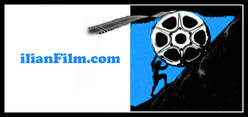| I just finished reading Simon Callow’s 3 volume monstrous book “Orson Welles” which left me with a peculiar feeling of dread. I can’t help, but see the resemblance between Simon Callow and Iago in Orson Welles’s film “Othello.” Callow with his meticulous evil, not with Mephistophelian malice, attempts to chip away aspects of Welles’s achievements in the arts in |
general and in his films in particular.
Simon Callow’s inferiority to the rich and intricate figure of Orson Welles is carefully concealed through the use of rich language, but even the use of pregnant phrases can’t disguise the bitterness and the contempt he hides for his subject in this egregious and “shrewdly analytical” (Joseph McBride) regurgitate. His judgments of Welles’s character and Welles’s intentions (one wonders how does he know them) are inflated opinions that amount to one thing - miscarriage.
Concealed behind his attempt of a complete reenactment of the events, these three books offer little, but a riddle of reductive judgments. The author's pretentious ambition to write Shakespearean biography falls short in the exact opposite proportion of Orson Welles’s character in real life.
Using multiple sources for the events he describes, Callow prefers to give more weight to the sources that diminish Welles’s contribution to the projects he was involved with. On numerous times he rejects sources for events based on the mere fact that they are favorable or in praise of Welles’s genius.
Mr. Callow won’t remain in the historical archives of cinema or theater based on the sole fact that he wrote about one of the greatest auteurs of film, theater and radio. I wish he saved his energy and used it in more efficient ways connected with his primal trade.
Because when it comes to the arts it take more than talent to succeed in more than one of them. It takes a genius to leave a mark on the arts of theater, radio and film. And we had such an artist in the last century and no amount of black ink or “saturated fat” on paper will diminish the extraordinary talents and achievements of Orson Welles in those three mediums.
Simon Callow’s inferiority to the rich and intricate figure of Orson Welles is carefully concealed through the use of rich language, but even the use of pregnant phrases can’t disguise the bitterness and the contempt he hides for his subject in this egregious and “shrewdly analytical” (Joseph McBride) regurgitate. His judgments of Welles’s character and Welles’s intentions (one wonders how does he know them) are inflated opinions that amount to one thing - miscarriage.
Concealed behind his attempt of a complete reenactment of the events, these three books offer little, but a riddle of reductive judgments. The author's pretentious ambition to write Shakespearean biography falls short in the exact opposite proportion of Orson Welles’s character in real life.
Using multiple sources for the events he describes, Callow prefers to give more weight to the sources that diminish Welles’s contribution to the projects he was involved with. On numerous times he rejects sources for events based on the mere fact that they are favorable or in praise of Welles’s genius.
Mr. Callow won’t remain in the historical archives of cinema or theater based on the sole fact that he wrote about one of the greatest auteurs of film, theater and radio. I wish he saved his energy and used it in more efficient ways connected with his primal trade.
Because when it comes to the arts it take more than talent to succeed in more than one of them. It takes a genius to leave a mark on the arts of theater, radio and film. And we had such an artist in the last century and no amount of black ink or “saturated fat” on paper will diminish the extraordinary talents and achievements of Orson Welles in those three mediums.

 RSS Feed
RSS Feed